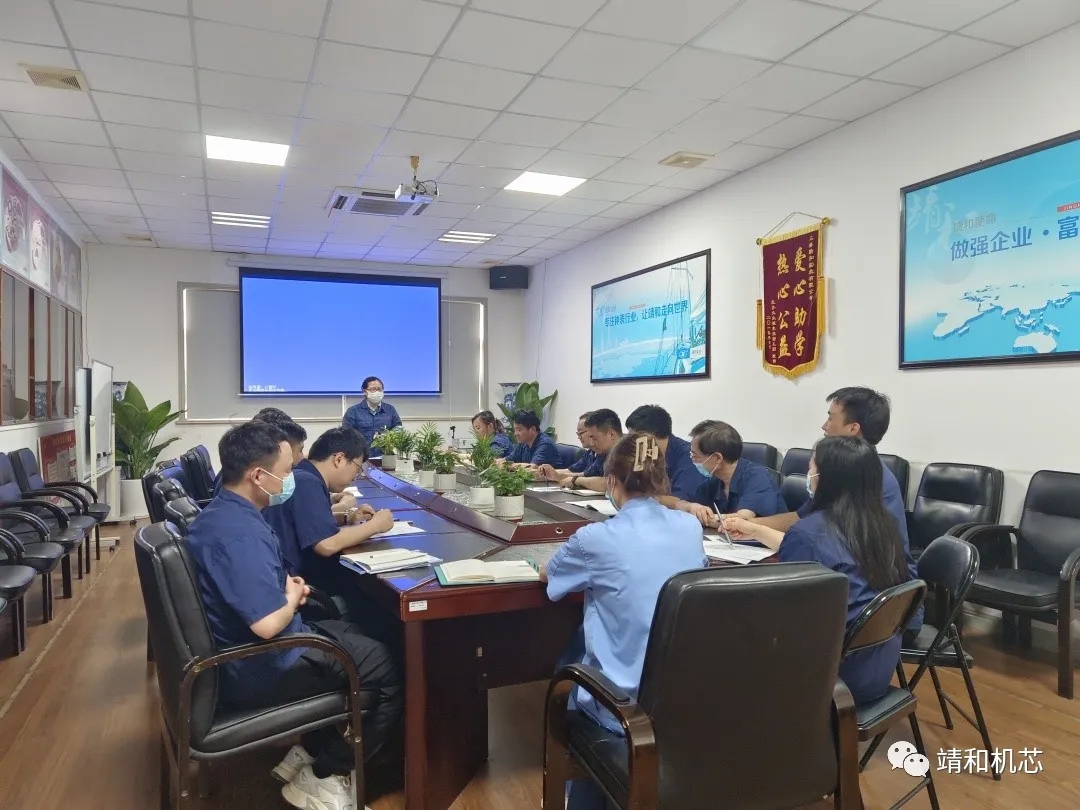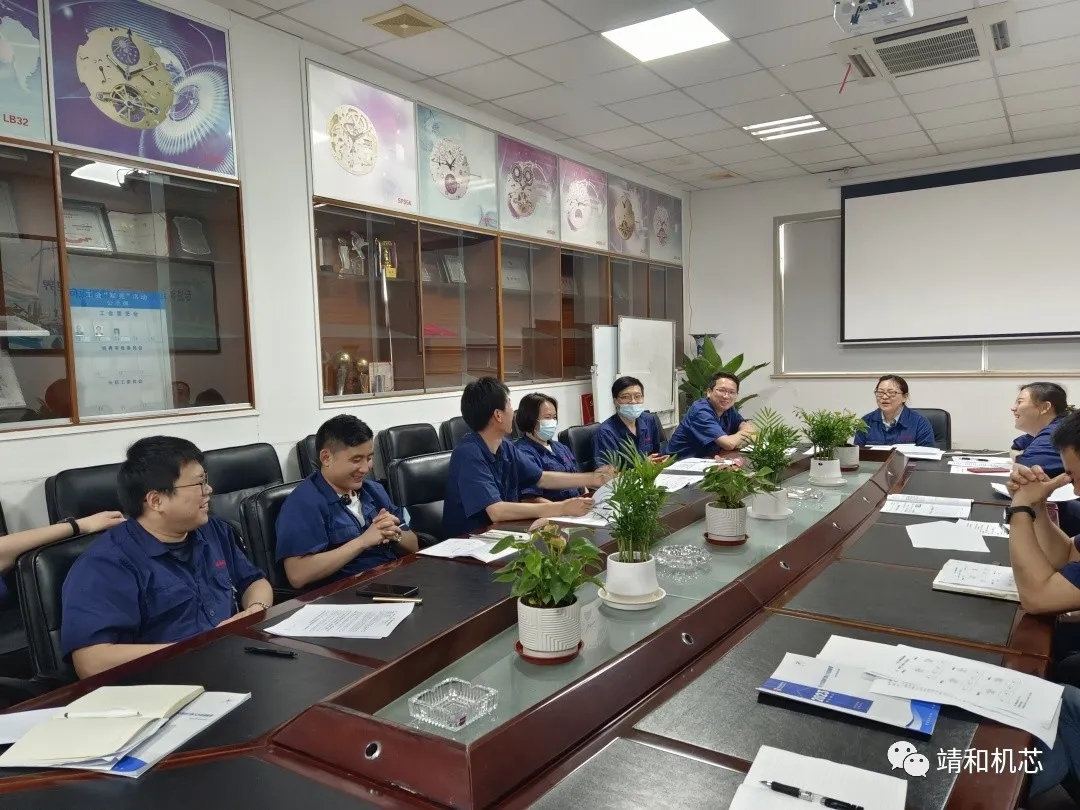On May 14, 2023, Jinghe welcomed the third session of its elite training course. The company collaborated with "Futai Practical Business School" and once again invited Teacher Ding Jian to conduct a systematic and specialized training for middle-level managers in non-human resource departments - human resource management in non-human resource departments. The implementation of this course The main purpose is to let our non-human resource department managers understand that the primary leader in human resource management within their own departments is themselves. The primary task is to make role breakthroughs and become the "HR" experts within their departments. Each workshop and department must first act as the HR manager within the team, and only then can they become the production/business managers of the team.
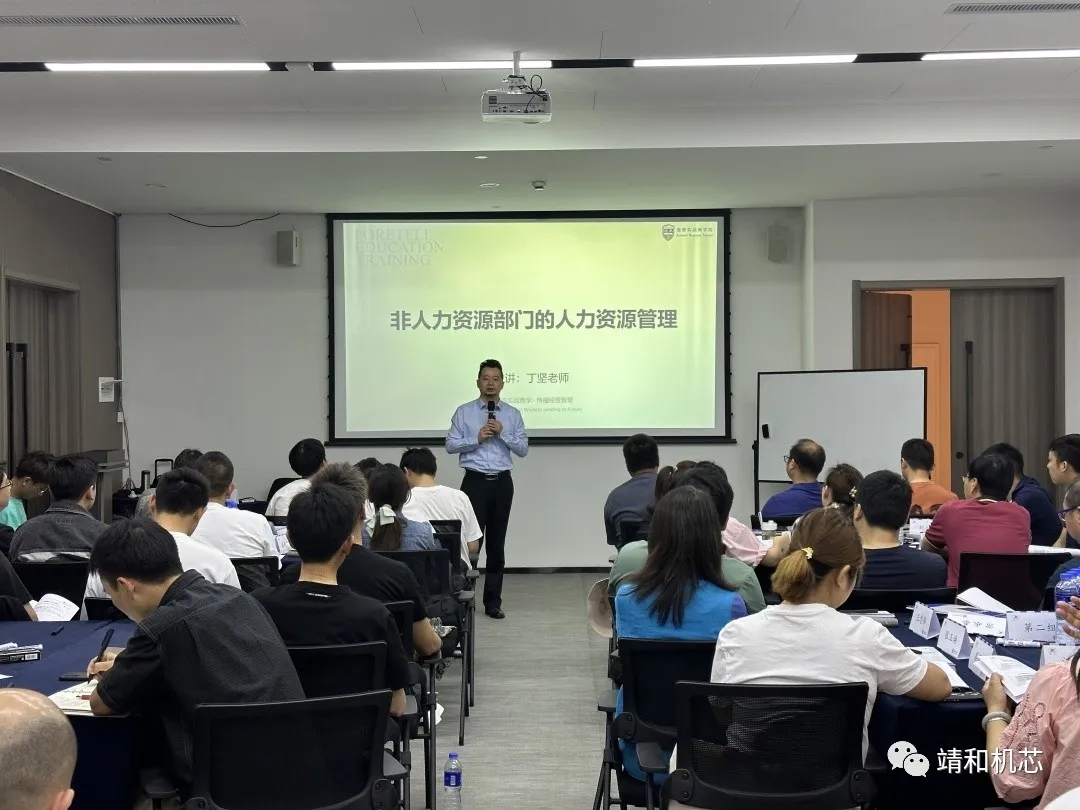
Before the training, the Human Resources Department had another thorough communication with Ding Jian, the training mentor of Futai. Regarding the topic of this training, they raised our practical issues and hoped that the teacher would combine the actual situation of Jinghe in the training course, so that our middle-level cadres could have a clearer and more definite understanding of the "HR" work in their department by integrating the teacher's explanations with the actual HR work in their work.
The course of the day was extended from four units, allowing the trainees to learn from four aspects what work the "HR" management of their department should do?
Unit 1: Role Breakthroughs in an Era of Change
A good leader is first and foremost an "HR" expert
What is management? When this question was raised, everyone started to discuss it and offer their own opinions. The teacher then combined the trainees' insights and concluded that management is about cultivating others' problem-solving abilities. Everyone was actually a bit surprised to hear this explanation. The teacher then explained professional knowledge and real cases to help the trainees understand more clearly what management is and what human resource management is. Introducing the content of human resource management from the meaning of management enables middle-level managers outside the human resource department to understand the content of human resource management work and realize that a good leader is first and foremost a "human resource expert" - they should first be the HR manager of the team and then the production manager of the team. Then, based on the current actual situation of Jinghe Company, have the managers start the human resource management work of the department from three aspects - personnel recruitment, personnel training, and personnel motivation;
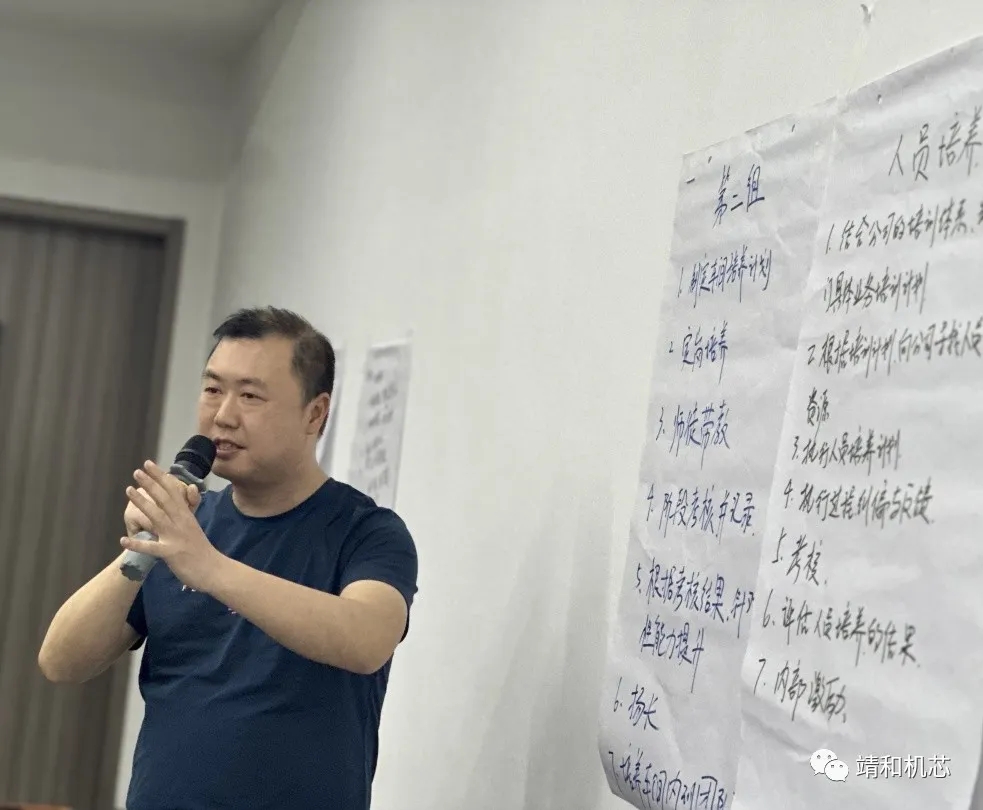
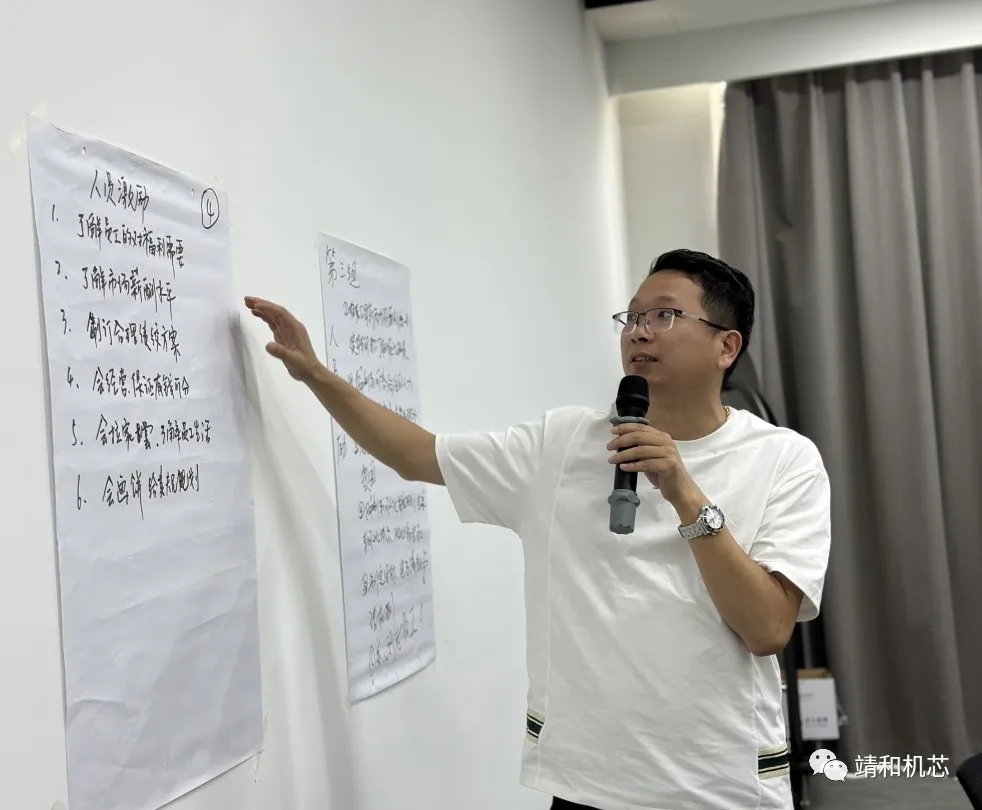
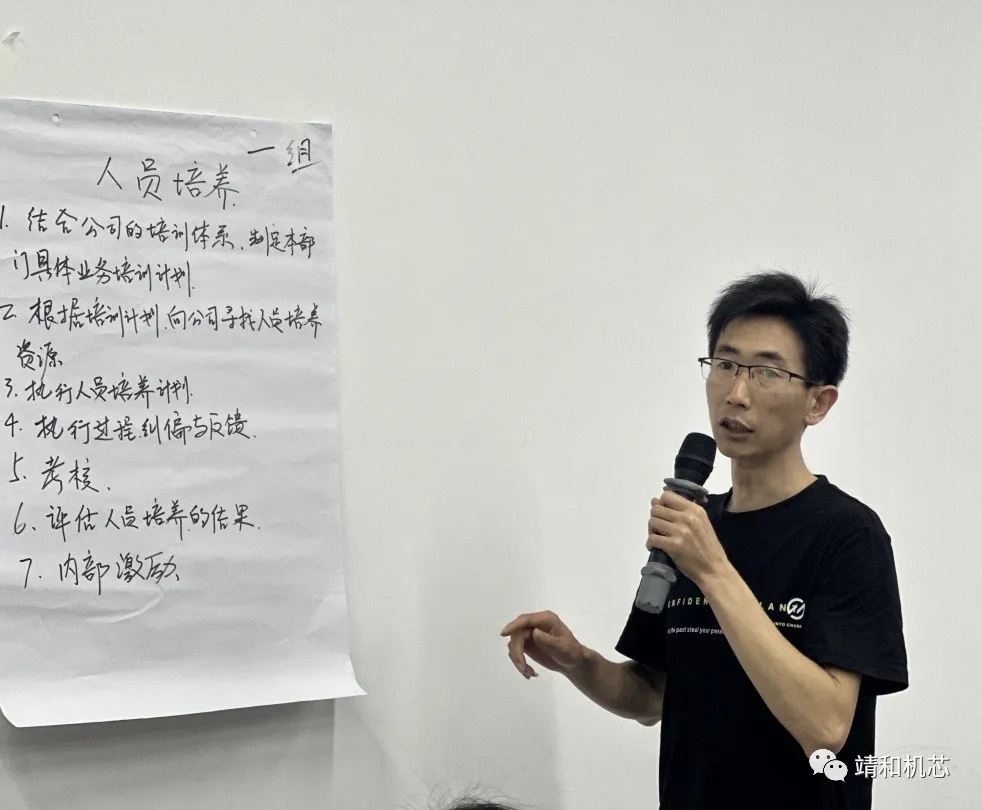
Unit 2: Discerning Eyes to Recognize People
Efficient recruitment and precise interview skills
When students are learning this unit, they start from practical tools. They learn that before recruiting, they first set standards and implement the recruitment process based on tools such as the Three-Ring Rule and the talent portrait Diamond model. Then, they use the behavioral interview method to carry out the interview process. The essence of behavioral interviews is to collect as many STAR behavior samples as possible within the effective interview time. Enable the interviewees to have a better understanding of the past behavioral patterns of the applicants, make a preliminary judgment and prediction based on these patterns, or select talents suitable for the company's development in different behavioral categories through some interview techniques, and reason from the reverse underlying logic whether they possess certain target behavioral traits.
A good beginning is half the battle. The morning half of the training course ended with everyone's active participation. Before the second half of the course began, some trainees specially prepared a wake-up dance to refresh everyone's mind. Everyone followed the dynamic steps of the lead dancer and danced along. Then, the afternoon half of the training course started.
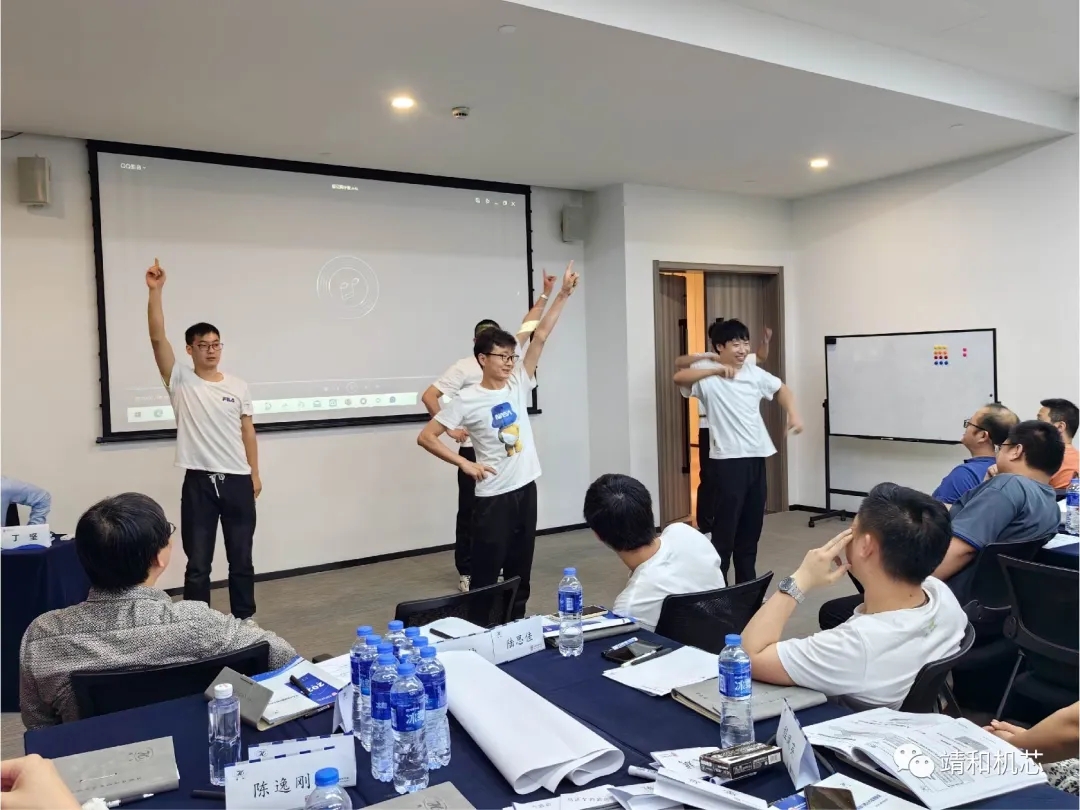
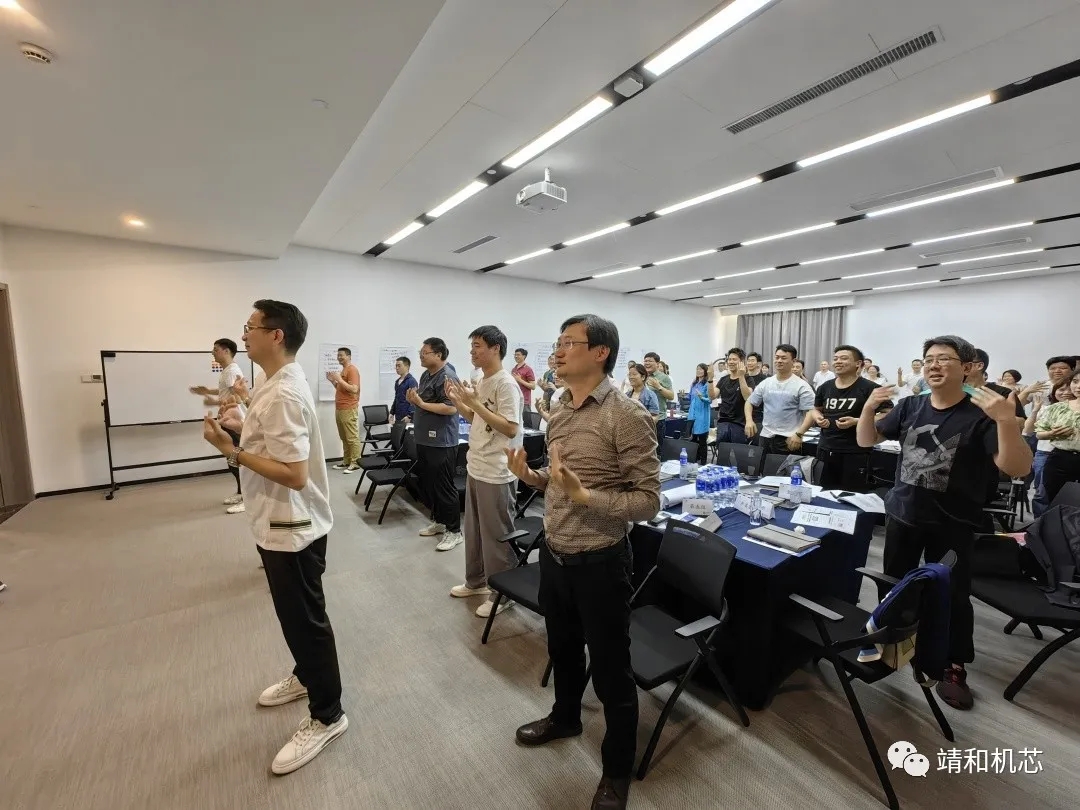
Unit 3: Empowering the Team
Team talent cultivation and echelon construction
Department managers should break through their concepts and do a good job in talent cultivation within their departments. In the production workshop, they should implement the practical four-step method through the construction of a talent echelon:
Step 1: Information collection and personnel inventory. The team needs to establish a talent database and conduct talent inventory through two dimensions: performance and potential.
Step 2: Clarify the standards and include talents in the database; Determine the key positions of the team and establish a dynamic reserve talent pool;
Step 3: Cultivate in the library and provide customized tutoring; Through the talent cultivation practice tool - formulating the personal development plan (IDP) for key positions;
Step 4: Dynamic assessment, talent removal from the pool; Discuss through practical tools - establish a talent succession map and formulate short-term, medium-term and long-term plans suitable for successors.
Based on the actual situation of Jinghe, Teacher Ding Jian proposed suggestions for the construction of a talent cultivation team suitable for Jinghe's development. Starting from aspects such as precise recruitment, learning and passing, team integration, learning and exchange, mixed legions, mentorship, project practice, and assessment linkage, a talent team with Jinghe's characteristics was built.
Unit 4: Igniting the Fire of the Heart
Employee Psychological Needs and Non-compensation incentives
All incentives are based on "motivation". Managers need to identify the motivations of different employees and apply different incentive methods according to their individual needs to motivate different employees. At the same time, it is also necessary to pay attention to the emotional resources of department employees - very unstable psychological variables. Emotions are a limited resource that needs to be replenished regularly. Once the emotional resources of employees are exhausted, they may exhibit extreme behaviors. Therefore, our management personnel need to pay attention to the emotional accounts of employees. Judging from the current situation of the employed staff, it is necessary to pay special attention to the needs of the new generation of employees. And in light of the characteristics of the new generation of employees, three key words have been proposed - protagonist motivation, achievement orientation, and relationship needs. select, cultivate and retain the post-95s new generation of employees from these aspects.
At the end of the day, Teacher Ding Jian concluded the class with a section on the "Five Points" project of team-building activities and the non-salary incentive method to enhance team cohesion.
After each training session, each team would summarize their team's points. In the end, the team with the highest points had a small interaction session with Teacher Ding Jian, earning team points. This was also the result of the entire team's concerted efforts and hard work.
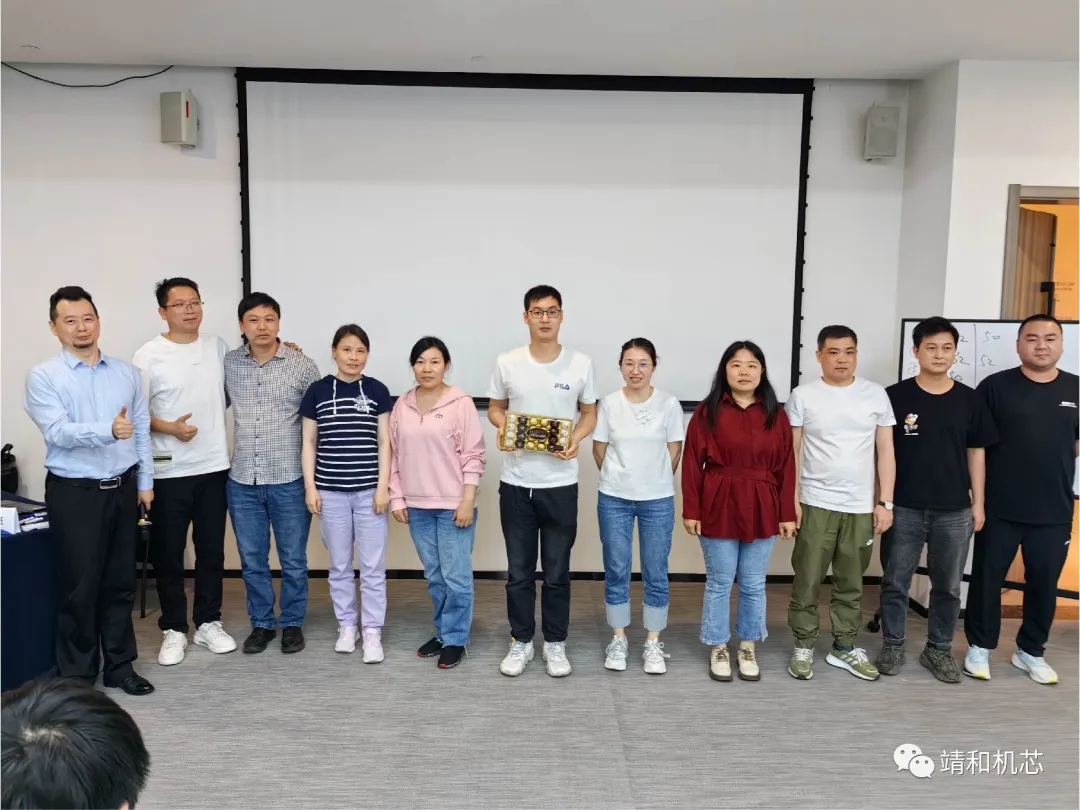
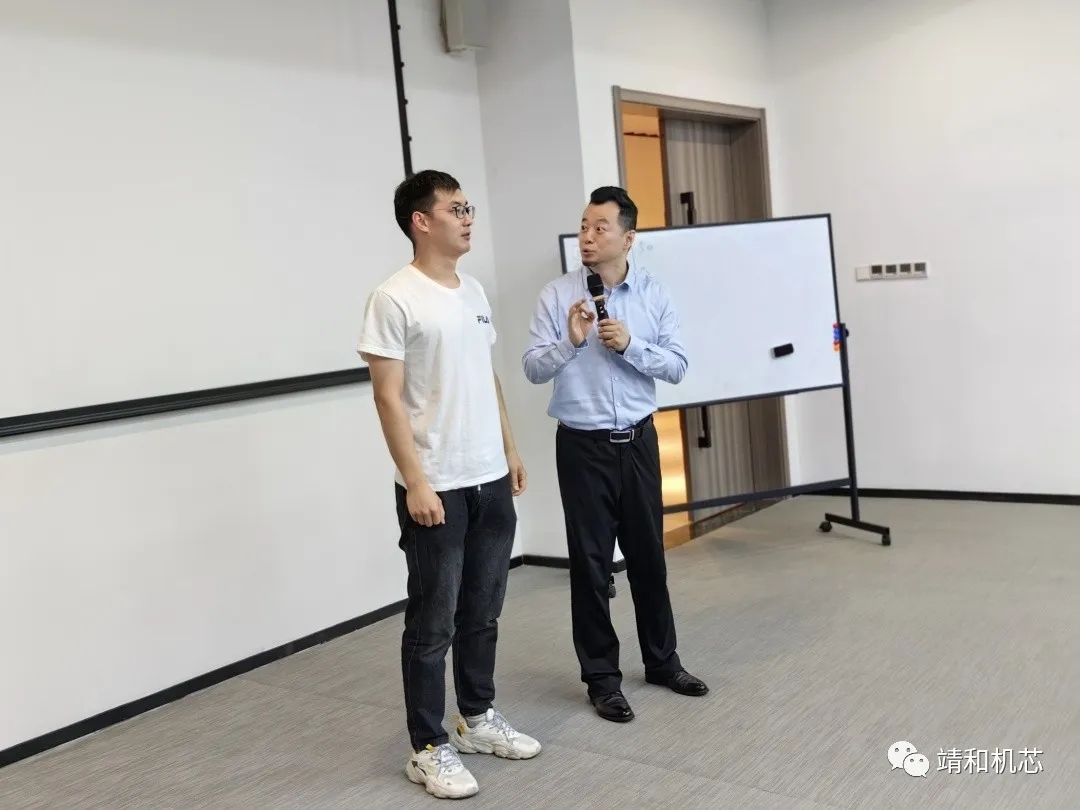
The post-training review work is also being actively carried out. After discussion and summary by the Human Resources Department, the participants of the review meeting, the theme of the meeting, and the form of the meeting were identified. The Human Resources Department distributed the discussed theme of the meeting to each workshop and department, asking everyone to make all necessary preparations and attend the review meeting with the results of the discussion. At the review meeting, each workshop and department successively introduced the review themes of their own departments. This review meeting revolved around three contents: ① The talent succession map of key positions for front-line operators; ② How to manage employees' emotional accounts; ③ Raise questions related to training or problems encountered in work practice. Centering on the theme of the meeting, everyone freely expressed their opinions and conducted post-training review and summary work based on the actual situation of their own workshops and departments.
